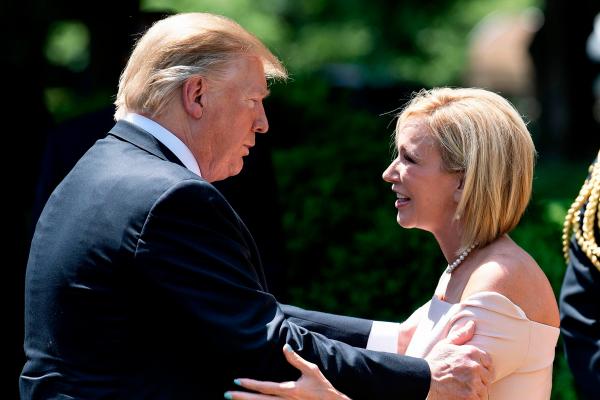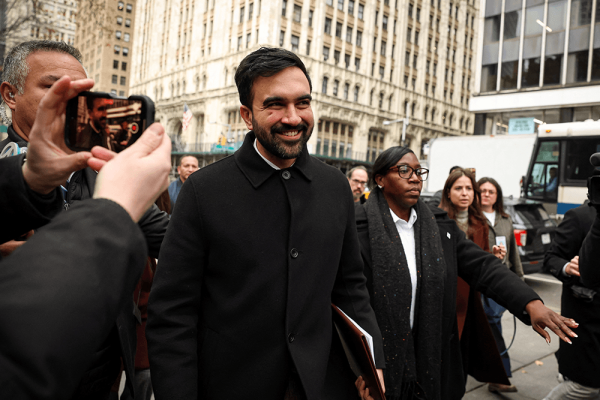In May 2018, more than a year after taking office, President Donald Trump issued an executive order establishing the position of adviser to his “Faith and Opportunity Initiative.” Last week, more than a year after the issuance of that executive order, and only a year before the next presidential election, the White House confirmed that it has tapped televangelist Paula White to fill this role. In light of these developments, it’s a good time to take a brief look at the history of White House partnerships with faith-based and neighborhood organizations as well as standards that should be used to evaluate such work.
President George W. Bush established the White House Office of Faith-Based and Community Initiatives nine days after he was inaugurated. In early February 2009, President Barack Obama continued this office, while putting his own stamp on its name, policies, and practices. The mission of these offices was to serve people in need, and the means by which they did so was to partner with both religious and secular organizations.
Here’s one example: During my first year as executive director of the White House Office of Faith-Based and Neighborhood Partnerships, I traveled to Philadelphia to meet with community leaders who partner with the United States Department of Agriculture (USDA) through its Summer Food Service Program to subsidize nutritious summer lunches for students who need them. I made this visit with my friend, Dr. John DiIulio, the first director of the White House Office of Faith-Based and Community Initiatives during the George W. Bush administration.
In Philadelphia, about 22 percent of children live in households that struggle to put enough food on the table for every family member. That means when school is out, and school meals are not available, many children are at risk. The Summer Food Service Program helps to fill this gap — but the government needs community organizations to lend their helping hands. In Philadelphia those helping hands include the Catholic Archdiocese’s Nutritional Development Services and the Salvation Army. At the Salvation Army site I visited, more than 100 kids were enjoying nutritious food, a safe environment, and fun in the organization’s gymnasium. During the summer of 2012, nongovernmental partners in Philadelphia served over 875,000 free summer meals to children. And between 2009 and 2015, the federal government and its partners increased the number of summer meals served to kids by 16 percent, a total of more than 1.2 billion summer meals provided.
Such success stories are based in part on White House commitments to key principles. Here are four standards that past administrations of both parties have embraced.
First, the mission should be serving people in need. Americans don’t always agree about the best way to assist people who are struggling, but there is widespread agreement on some fundamentals. This helps to explain the strong opposition to a rule USDA recently proposed that, as the agency has conceded, “would mean that almost a million children would no longer automatically qualify for free school lunches.” Every administration must help people in need, not rob them of support that is crucial to their well-being.
Second, the mission must be accomplished in a way that respects the religious liberty guarantees of the United States Constitution. Here again, Americans don’t always agree about exactly what these guarantees entail, but they usually unite around some core principles. Most obviously, no government official has any business saying that Americans must support a particular president or risk damnation.
Of course, government officials do not surrender their rights to practice their faith when they take public office. But such officials should ensure that their public statements on religion, even when personal, are consistent with the spirit of the Constitution. They should do nothing to cast doubt on their commitment, for example, to defend the equal rights of Americans of all religions and of no religion.
Likewise, public servants must not prefer one faith over another, discriminate against any religion, or fear-monger on factors such as faith. President Trump has done so repeatedly, without any sign of remorse. Until and unless he apologizes for such actions and retracts them, his record will continue to cast a large shadow over this work. Some of his appointees, however, have served honorably on these issues. They have affirmed the equal citizenship of people of all faiths and none and reached out broadly to people of different religions and beliefs. White House appointees working with faith-based organizations certainly must do the same.
A third basic principle that appointees must respect is that their public work should not include electioneering for political candidates, including the president they serve. This prohibition generally applies to all White House employees, although not to the president and vice president. It has special salience for work in this area. If the stated mission is to serve people in need but the actual aim is to enlist faith-based leaders and organizations in electioneering, it will breed great cynicism and make it exceedingly difficult, if not impossible, for future administrations to rehabilitate this work.
Finally, White House appointees must not use their public office for private gain, nor appear to do so. Regardless of whether formal ethics rules require it, such appointees should not hawk goods, especially religion-themed goods, while they serve in public office — even if their official positions are part-time. Appointees who push products will inevitably appear to be trading on a White House position for personal enrichment. And if appointees working with faith-based organizations sell items that they claim are religious, particularly ones that are accompanied by promises of spiritual rewards, it will rightly be viewed as a manipulative scheme that shamefully has the imprimatur of the United States government.
These are bedrock rules administrations of both parties have embraced and sought to honor. People of all faiths and none, and people of all political stripes, are right to hold every administration accountable for adherence to such fundamental American values.
Got something to say about what you're reading? We value your feedback!






